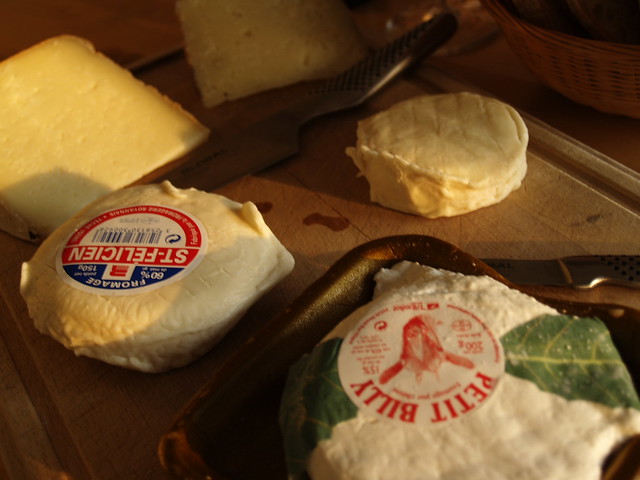What do the words thank you and charisma have in common?
Well, charisma (personal charm or magnetism) comes from the Ancient Greek χᾰ́ρῐσμᾰ (khárisma – grace, favour, gift), from χᾰρῐ́ζομαι (kharízomai – I show favor), from χᾰ́ρῐς (kháris – grace), from χαίρω (khaírō – I am happy) [source].
The Greek word for thank you, ευχαριστώ (efcharistó), comes from the same root, via εὐχαριστῶ (eukharistô), a contracted form of εὐχαριστέω (eukharistéō – to bestow a favour on, oblige; to be grateful, thankful; to thank, give thanks), from εὐχάριστος (eukháristos – grateful, thankful; pleasant, agreeable), from εὐ- (eu – good), χᾰ́ρῐς (kháris – grace) & -τος (-tos) [source].
The word Eucharist also comes from the same root, via the Middle English eukarist, from Old French, from the Ecclesiastical Latin eucharistia [source], as does the name Charis. In Greek mythology Charis was one of the Graces or Charites (Χάριτες), goddesses of charm, beauty, nature, human creativity and fertility, and wife of Hephaestus (Ἥφαιστος), the god of blacksmiths, metalworking, carpenters, craftsmen, artisans, sculptors, metallurgy, fire [source].
I decided to look into the origins of the charisma today because one of the YouTube channels I found recently is called The Charismatic Voice. Through this this channel I’ve discovered various singers and groups, including some who sing in languages other than English. As I enjoy listening to and singing songs in a variety of languages, this is great for me.
Here’s an example of a Mongolian song:









